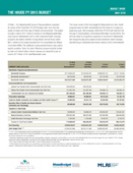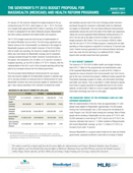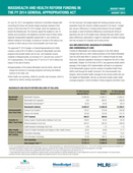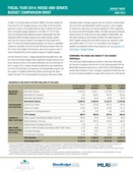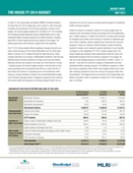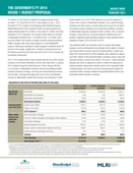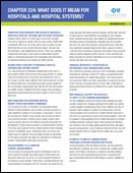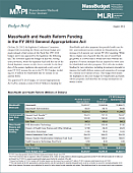This report – written by Anna Gosline and Elisabeth Rodman of the Blue Cross Blue Shield of Massachusetts Foundation – summarizes the key components of Chapter 224 of the Acts of 2012, “An Act Improving the Quality of Health Care and Reducing Costs Through Increased Transparency, Efficiency and Innovation,” which was signed into law on August 6, 2012. The law aims to control health care cost growth through a number of mechanisms, including the creation of new commissions and agencies to monitor and enforce the health care cost growth benchmark, wide adoption of alternative payment methodologies, increased price transparency, investments in wellness and prevention, an expanded primary care workforce, a focus on health resource planning, and further support for health information technology, among others. For a more in depth look at the Medicaid provisions in the law, see the Foundation’s report: Chapter 224 of the Acts of 2012: Implications for MassHealth. For additional information about scheduled stakeholder meetings, grant opportunities, and other implementation updates, see the state's website, Implementing Health Care Cost Containment.
